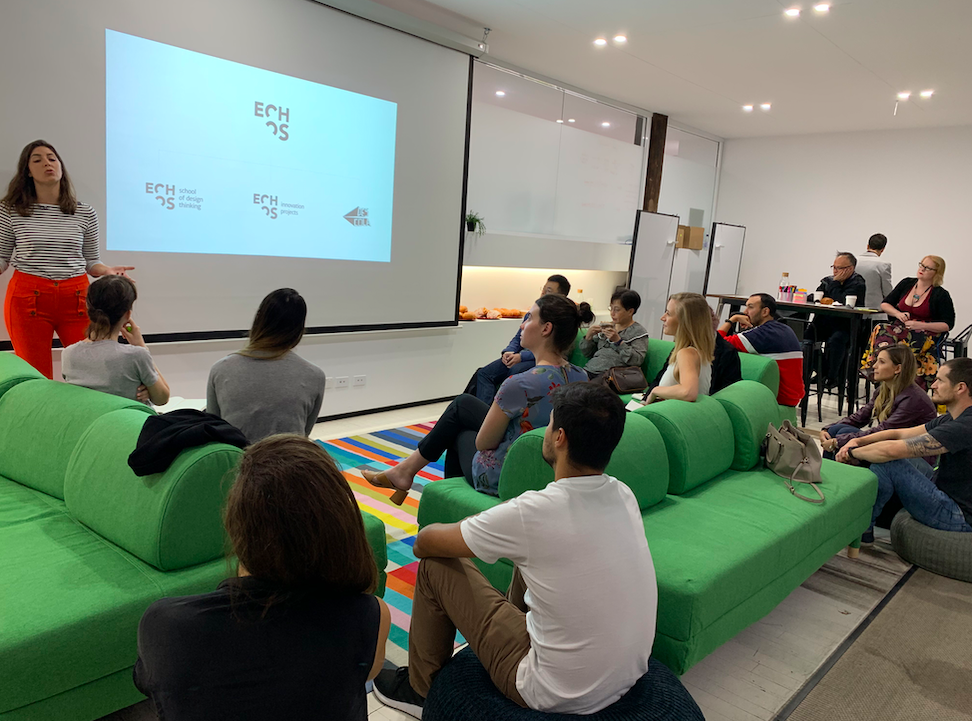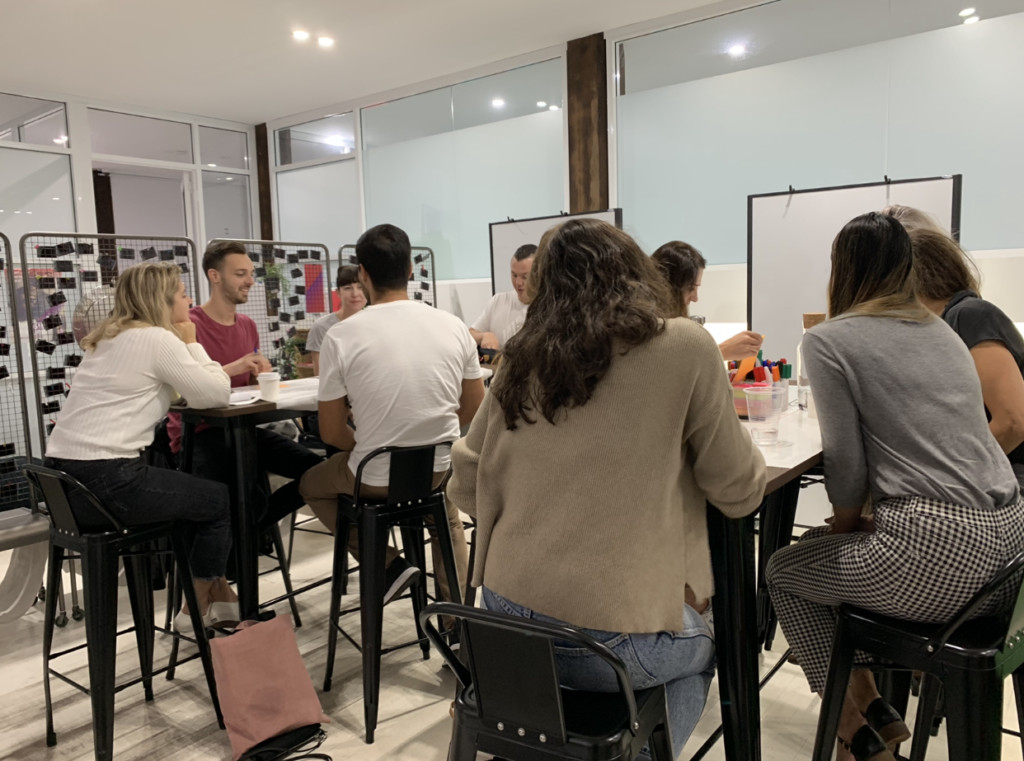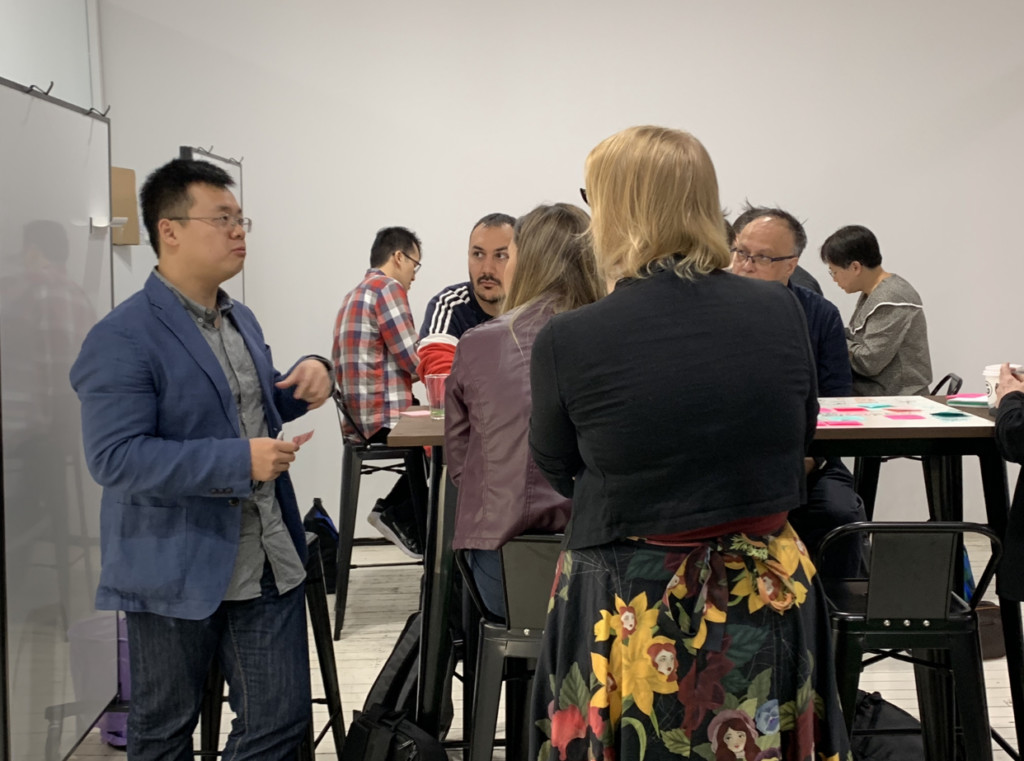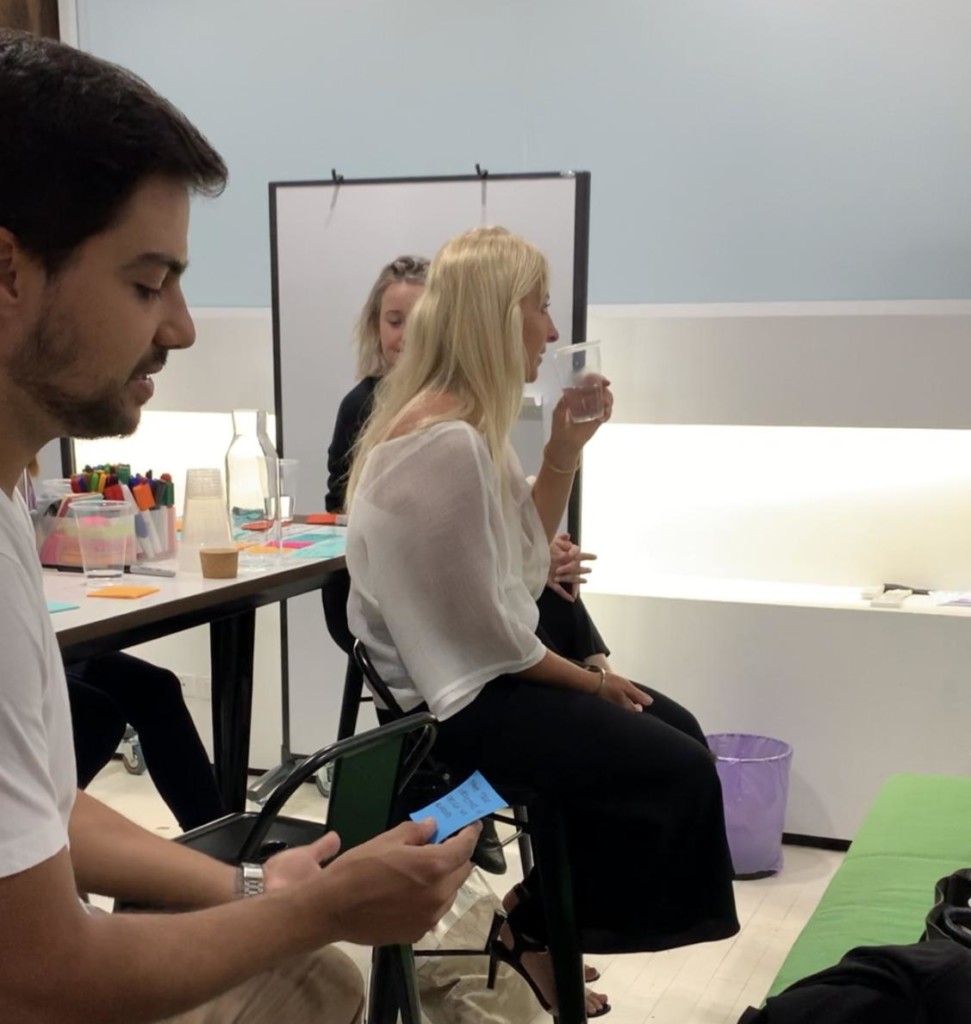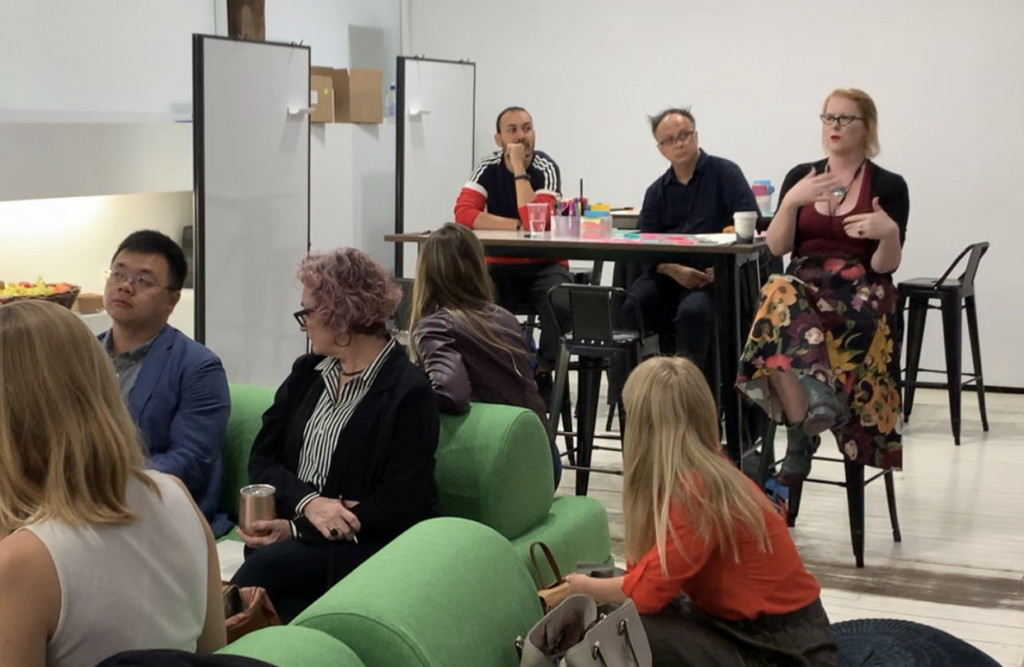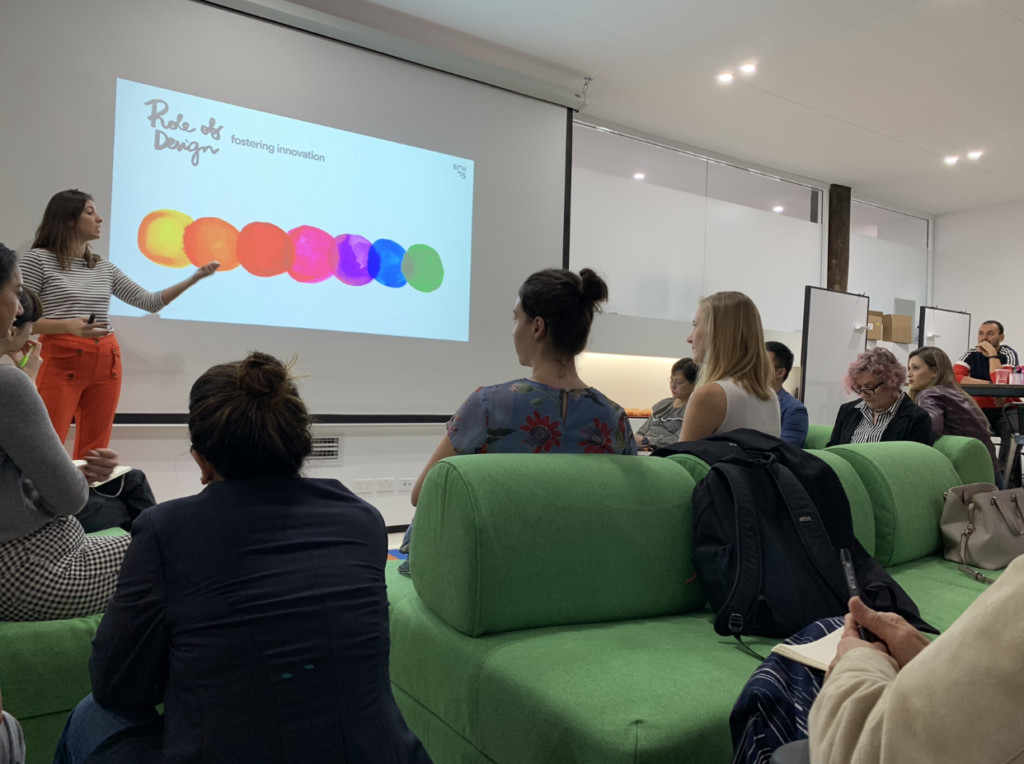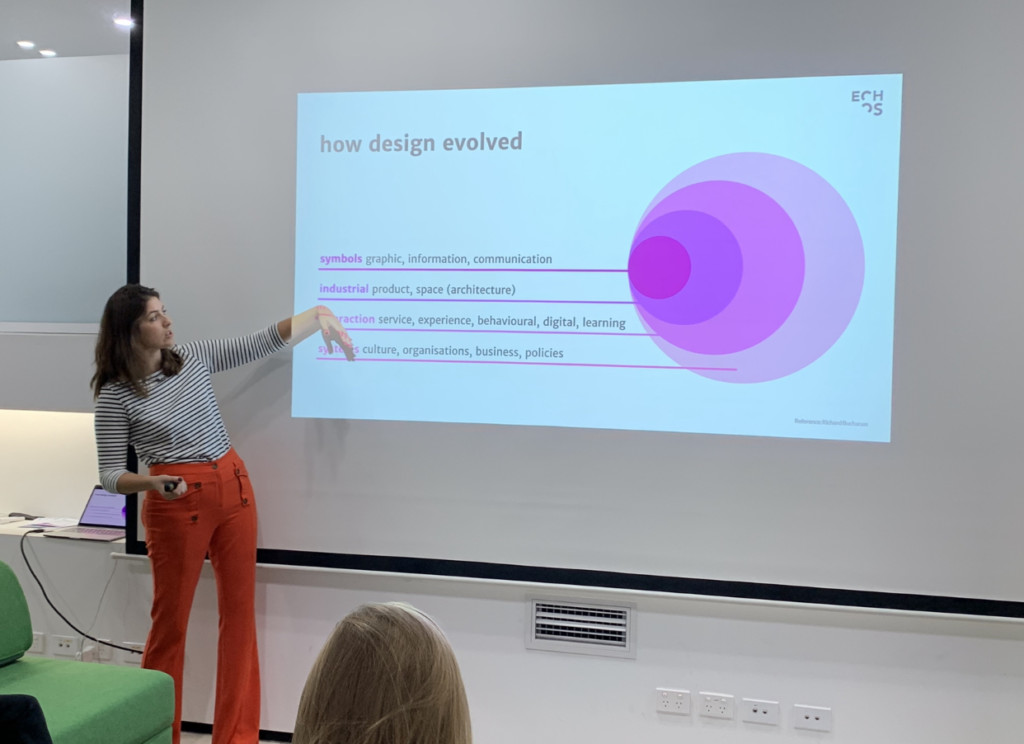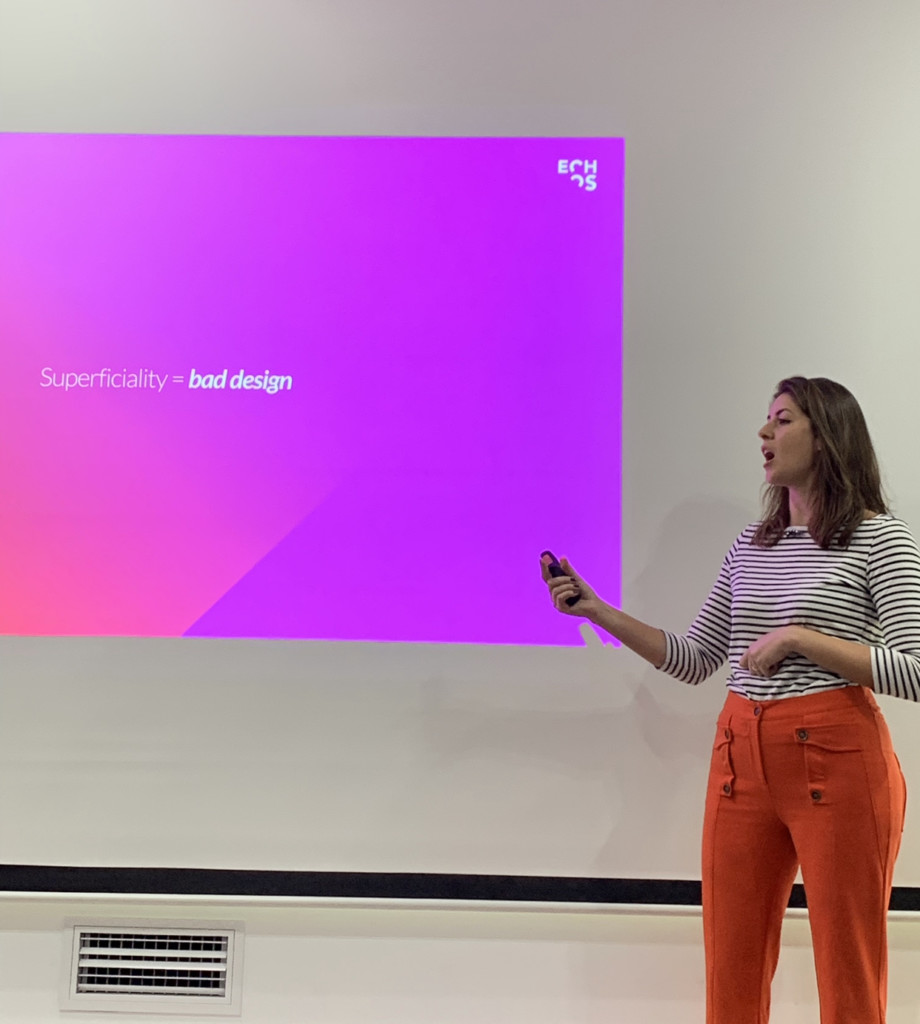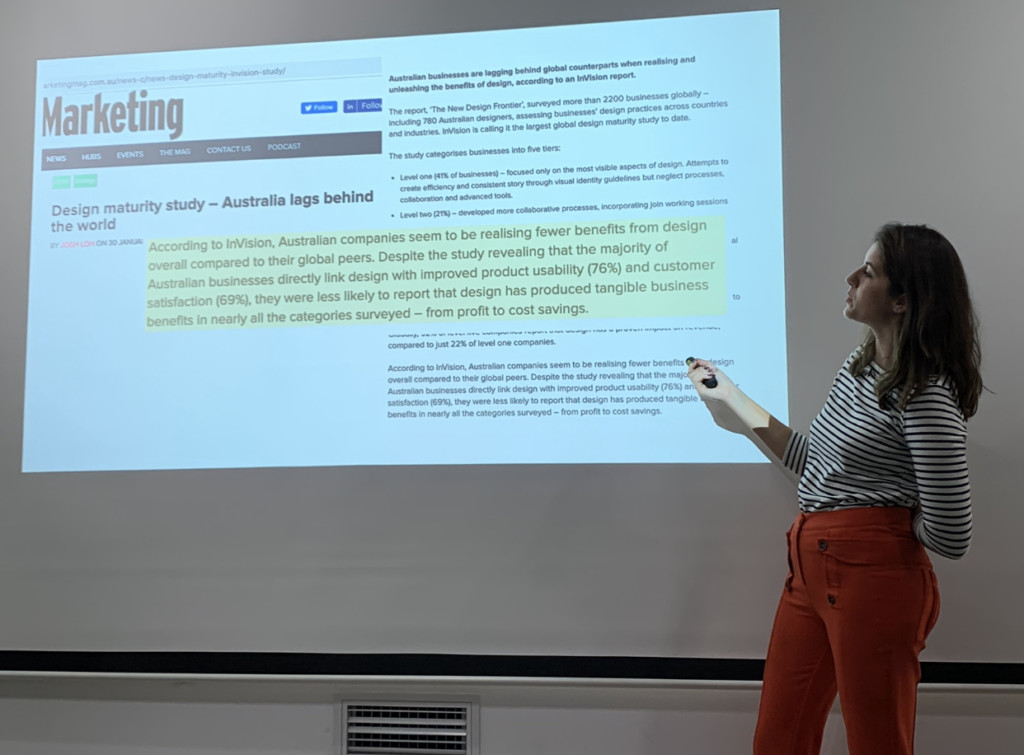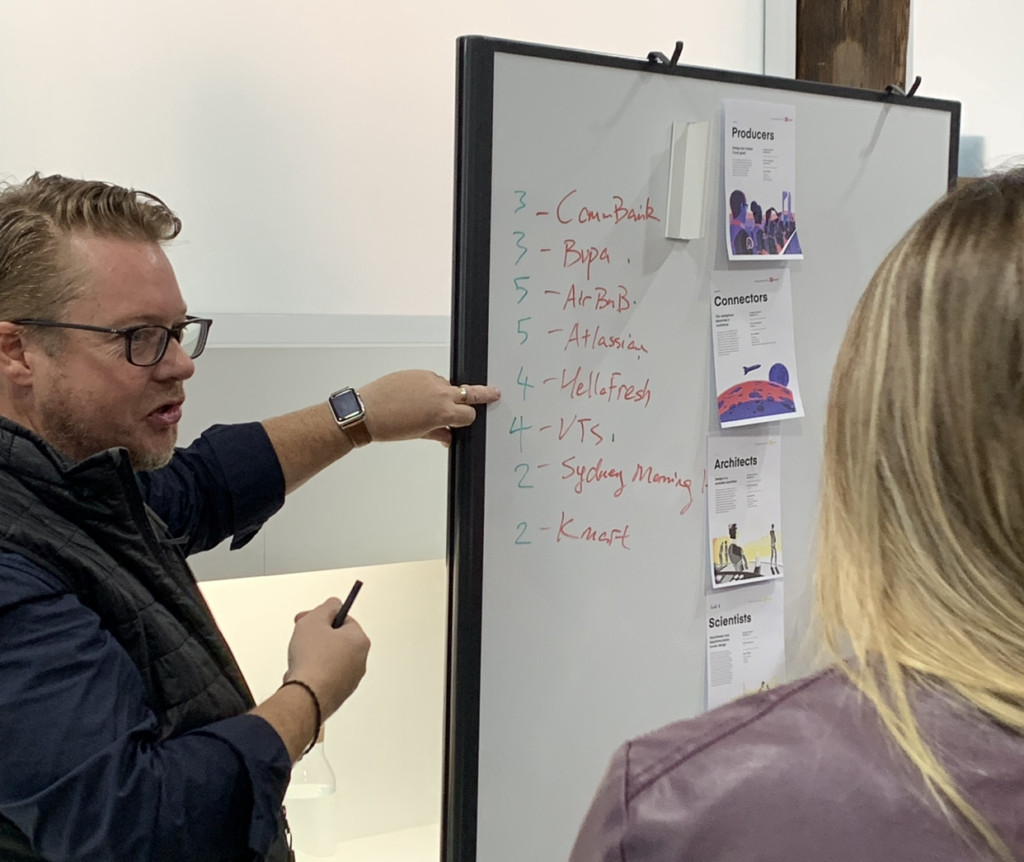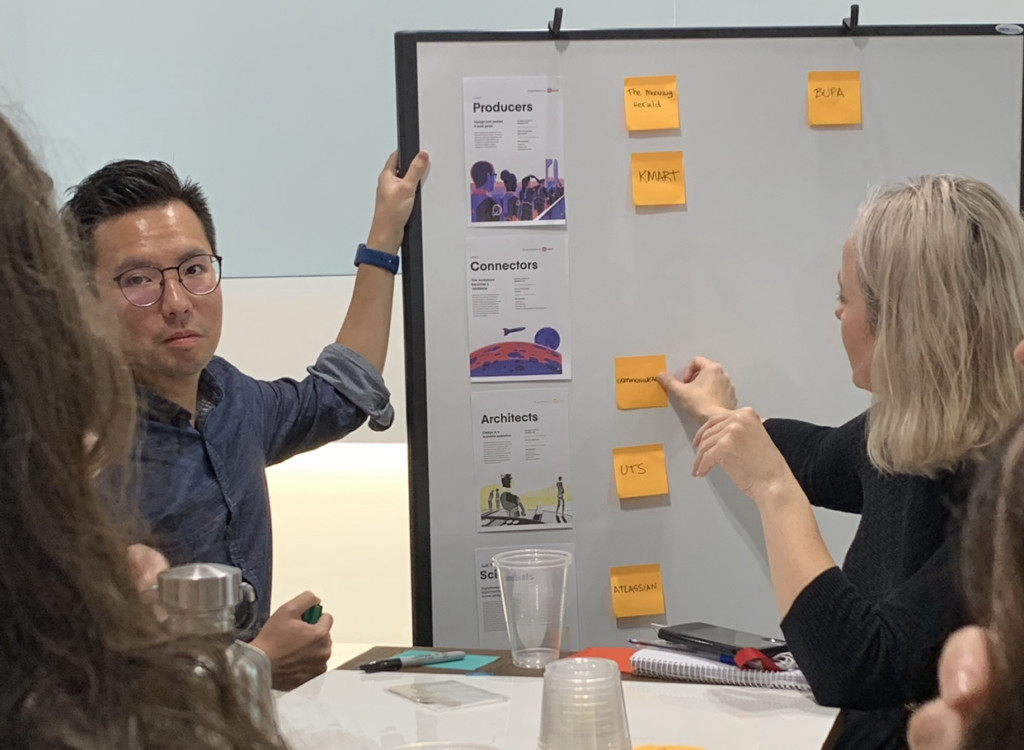This past week, Echos hosted an open workshop event in Sydney, where founder Juliana Proserpio talked about the theme “Design Thinking not for dummies: how to escape superficiality and foster innovation“.
Below you’ll find a rundown of what went on during the event.
Juliana opened the event by welcoming people to Echos’ new office located in Surry Hills.
After a brief introduction of Echos, participants were invited to partake on a warm-up exercise where they had to share with peers what was their personal connection with Design Thinking, and why they feel like superficially applying Design Thinking can be problematic.
After working collaboratively, groups shared their answers:
“The biggest problem with applying Design Thinking superficially, is that the objectives of design are not achieved, and therefore, you end up not being able to solve your initial problem.”
“If you’re just following a process and going through the motions, and just doing what you’re told, you don’t actually get the value of Design Thinking.”
“We had something similar. There are organisations that have that mentality of ‘just go through the process of Design Thinking’, and you tick your boxes, and you say ‘That’s it, we’ve done it. We’ve had our meeting and done it all.’, but in reality they are not really solving a problem at all. Design Thinking becomes a checklist.”
“Sometimes people are trying to solve a problem without knowing what the problem is.”
“A lot of times you’re not solving the right problem; all you’re doing is solving symptoms and, because of that, not creating any change. You’re not changing the system; you’re basically just coming out of the system to get right back into it.”
Juliana then moved on to speak about the roles of design.
She talked about the “Four Orders of Design”, by Richard Buchanan and gave the crowd insightful comments, such as:
“A complex problem is something that has, in itself, more than three challenges to be overcome.”
“Buchanan gives us four orders of design but, nowadays AI and technology can be considered a 5th order of design in the sense that we are creating things that are also creating things, and we have a responsibility over that.”
Proserpio then moved on to explaining the “Aspects of Superficiality” in design, and noted:
“Design Thinking solutions that have nothing to do with the core business of a company, and with its innovation strategy, won’t be implemented.”
“Design Thinking is not like following a recipe. It is like a friend of mine said to me once: ‘A great chef doesn’t follow a recipe to cook, they have repertoire and expertise, and they experiment with tastes and textures to achieve great results’. For Design Thinking is the same; you need repertoire.”
She brought up the point that, according to Marketing Magazine, Australia is lapping behind the rest of the world when it comes to “design maturity”, and spoke in depth about the InVision Design Maturity Model.
Participants were invited to partake at an exercise in which they had to discuss the “level of maturity within Australia’s leading companies”, such as Commonwealth Bank, Bupa, Hello Fresh, amongst others (pictured below).
And encouraged to discuss the level of “design maturity” within their own organisations.
The event ended with Juliana sharing six insights to overcome superficiality when applying Design Thinking:
1- Have someone in your team with expertise. Design is also like anything else; you will also need the ten thousand hours of practice to get somewhere.
2- Co-creation is at the midpoint of creation. After a co-creation session, there is still a need for translation, refinement, prototyping, testing and iteration.
3- Have people in your Design Thinking team with different kinds of design expertise.
4- Create a design culture based on the four orders of design.
5- Don’t ever be convinced that you “know it all”, no one does.
6- Build and understand your innovation strategy. It seems silly, but many people disconnect with the core of their business when trying to innovate.
To find out when Echos is hosting the next free event, subscribe to our weekly newsletter to receive calendar updates.
—
Follow us on social
Instagram – Facebook – LinkedIn – Youtube – Newsletter
How Can We Help?
For training and Innovation Journeys in your company: check out our in-house course offering
For upcoming courses in your region: visit our website.
If you have a special project and would like to use Echos’ consultancy services: send us an email.
Want to speak to a real person? Call us on 1300 502 006


